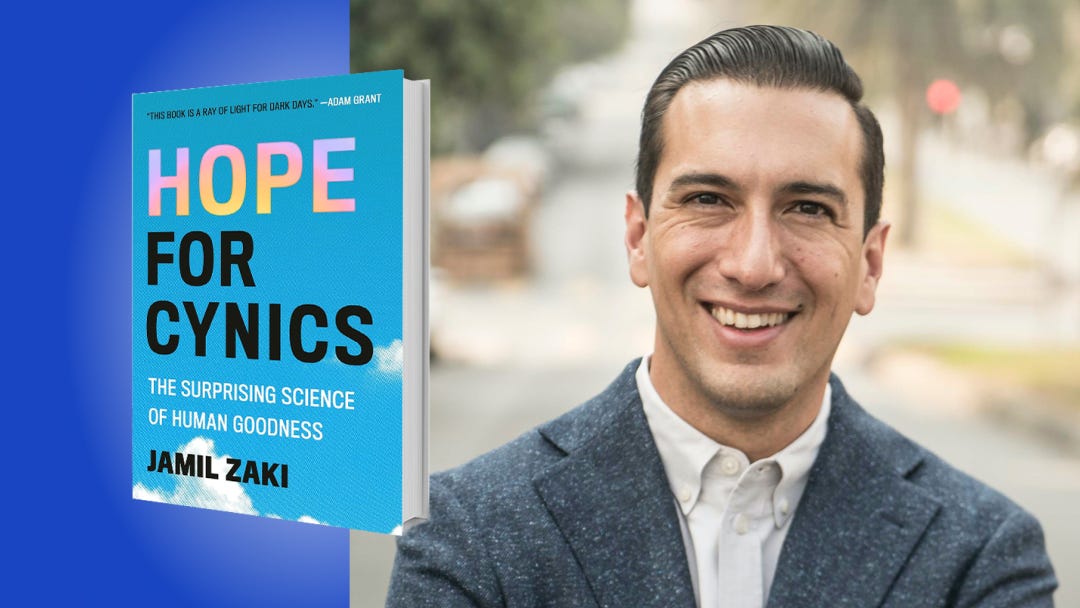Skeptical, Not Cynical: This Stanford Prof Shows You How to Flex Your Hope Muscle
Jamil Zaki shares 5 key insights from Hope for Cynics: The Surprising Science of Human Goodness.
Are you cynical? If your innate tendency is to be wary of people, you’re not alone. A recent survey showed that only about a third of Americans think their fellow human beings are generally trustworthy. But you might want to have a little more faith, according to Jamil Zaki, author of the new book Hope for Cynics: The Surprising Science of Human Goodness. Jamil is a professor of psychology at Stanford University and the director of the Stanford Social Neuroscience Lab . Our curator Adam Grant says his book is “a ray of light for dark days”. Read or listen to his 5 big ideas below:
The 5 Key Insights
1. Cynicism is a psychological poison.
2. Cynicism is overrated.
3. Skepticism is a better approach.
4. Hope is not naive.
5. Hope is a much-needed skill.
1. Cynicism is a psychological poison.
We can define cynicism as a theory about people. The idea is that humanity, in general, is selfish, greedy, and dishonest. You can test yours right now by seeing whether you agree with these statements:
No one cares much what happens to you.
Most people dislike helping others.
Most people are honest chiefly through fear of getting caught.
If you agree with bleak statements like this, you might be on the cynical side. And if you are, then you are not alone. In 1972, about half of Americans believed that most people can be trusted, but by 2018, that had fallen to a third of Americans. That’s about as big of a drop as the stock market took in the financial collapse of 2008. Cynicism is on the rise, and that’s totally understandable in a world full of corruption and injustice and one in which the media points out negative actions more than positive ones.
But that doesn’t mean that cynicism is helpful. In fact, it hurts us in basically every way psychologists can measure.
Cynics versus non-cynics tend to suffer from more depression, loneliness, and anxiety. Their relationships tend to fracture, as does their health. Cynics, for instance, are more likely to develop diabetes or heart disease and even die younger than non-cynics. Thomas Hobbes once said that people need society because, left to their own devices, life would be nasty, brutish, and short. That is a perfect encapsulation of cynical thinking, but ironically describes cynics themselves better than anyone else.




